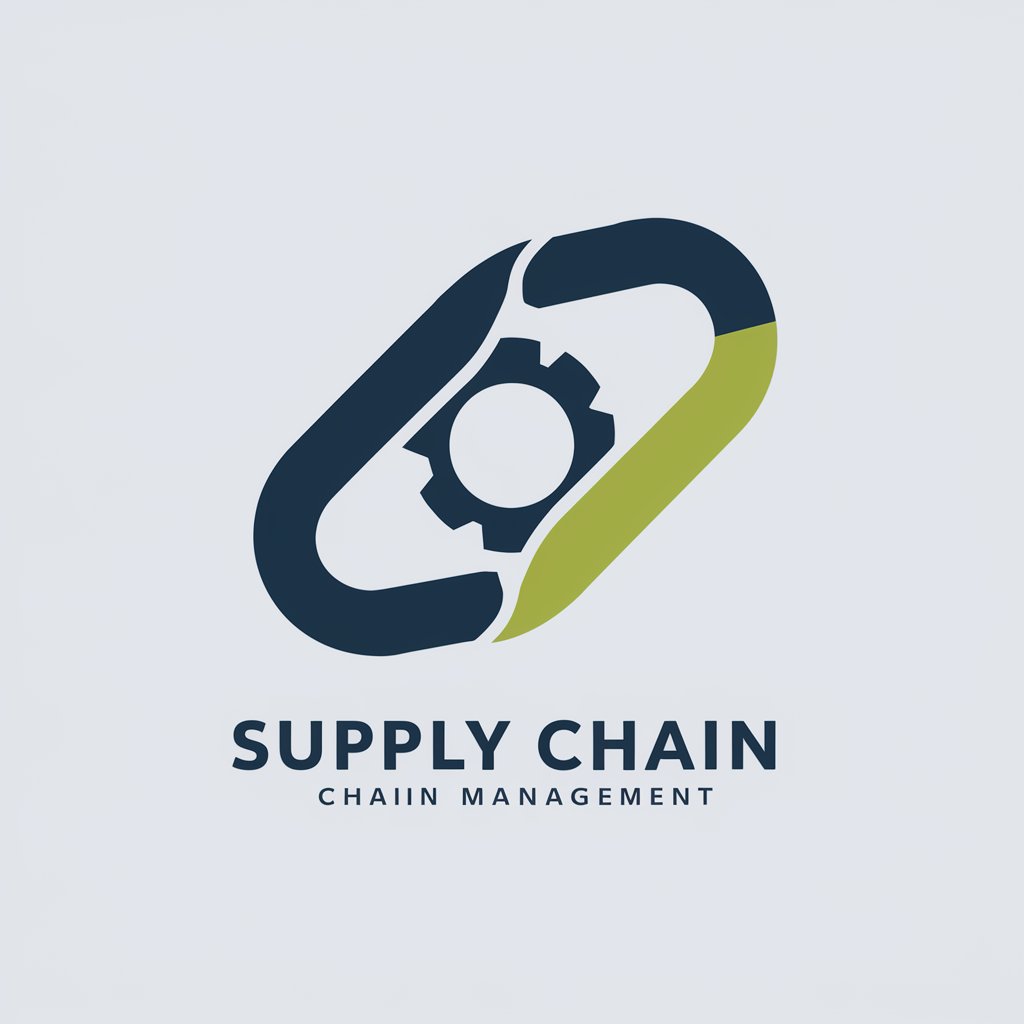Supply Chain Manager - AI-Powered Supply Chain Insights

Hello! How can I assist you in optimizing your supply chain today?
Streamlining Supply Chains with AI
What are the most effective strategies for reducing supply chain costs?
How can we enhance supplier relationship management in our supply chain?
What technological advancements are transforming supply chain management today?
Can you suggest data-driven methods for improving inventory accuracy?
Get Embed Code
Overview of Supply Chain Manager
Supply Chain Manager is a digital assistant specifically designed to enhance the capabilities of professionals managing supply chains. Its core purpose is to streamline operations, optimize logistics, and improve cost efficiencies through strategic insights and technology-driven solutions. For example, a scenario illustrating its functionality includes aiding a supply chain manager in analyzing real-time data to identify bottlenecks in the logistics process, enabling timely decision-making to mitigate delays and reduce costs. Powered by ChatGPT-4o。

Core Functions of Supply Chain Manager
Strategic Planning Assistance
Example
Facilitates the development of a comprehensive supply chain strategy that aligns with business goals.
Scenario
A supply chain manager is planning to expand operations internationally. Supply Chain Manager assists in evaluating market entry strategies, supply chain risks, and logistical considerations to ensure a seamless transition.
Cost Optimization
Example
Identifies cost-saving opportunities by analyzing spending patterns and supplier contracts.
Scenario
A company seeks to reduce its transportation costs. Supply Chain Manager analyzes shipment data to propose a consolidation of freight carriers and route optimization, leading to substantial cost reductions.
Real-time Analytics and Reporting
Example
Provides up-to-the-minute data on inventory levels, shipment tracking, and supply chain performance metrics.
Scenario
During a product launch, a manager needs to monitor stock levels across multiple warehouses. Supply Chain Manager offers real-time inventory updates and alerts to prevent stockouts and overstocks, aligning inventory with demand forecasts.
Sustainability Integration
Example
Guides the integration of sustainable practices within the supply chain to meet regulatory requirements and corporate responsibility goals.
Scenario
A company aims to reduce its carbon footprint. Supply Chain Manager analyzes the supply chain to recommend adjustments in supplier selection, transportation modes, and packaging materials that align with environmental sustainability goals.
Target User Groups for Supply Chain Manager
Supply Chain Executives
Senior managers and directors who oversee the strategic aspects of supply chains can utilize Supply Chain Manager to gain insights into market trends, competitor analysis, and strategic decision support.
Operational Managers
Individuals responsible for the day-to-day operations of supply chains benefit from the assistant’s ability to provide real-time data, operational efficiencies, and troubleshooting support.
Logistics Analysts
Analysts who require detailed data to optimize routes, manage inventory, and forecast demand will find Supply Chain Manager’s analytical capabilities indispensable for in-depth logistics planning and execution.

Using Supply Chain Manager: Step-by-Step Guide
Start Free Trial
Visit yeschat.ai to start a free trial of Supply Chain Manager without needing to log in or subscribe to ChatGPT Plus.
Explore Features
Familiarize yourself with the dashboard and explore the different functionalities such as demand forecasting, inventory management, and supplier relationship tools.
Customize Settings
Adjust the settings to align with your specific supply chain needs. Set up alerts for inventory levels, track shipment statuses, and manage vendor data.
Integrate Data
Import existing supply chain data from your ERP systems or spreadsheets. Use the tool's built-in analytics to gain insights and identify operational efficiencies.
Evaluate Performance
Regularly review the analytics dashboard to monitor performance indicators like delivery times, costs, and supplier performance. Use these insights to optimize your supply chain strategy.
Try other advanced and practical GPTs
Secure Your Devices
AI-Powered Device Protection

Employee Communication Specialist
Enhance Communication with AI Power

Resilient Leadership Coach
Empowering Leaders with AI

FaithBuilder+🏋️✝️
Empowering Your Faith Journey with AI

Moving Forward
Navigating Grief with AI Compassion

GPT Prompt Security&Hacking
Safeguard your AI sessions with advanced security.

Stoic Sage
Navigate life with Stoic wisdom

Bible GPT - Strengthen Your Relationship With God
Explore Scripture with AI Assistance

Generation Z Manager
Empowering Gen Z with AI-driven management.

Remote Team Building Activities
Enhancing Team Bonds with AI

Marketing & Social Media Expert
Amplify Your Brand’s Voice with AI

Strengthen Your Relationship
Empowering relationships with AI-driven advice

Frequently Asked Questions about Supply Chain Manager
How does Supply Chain Manager optimize inventory levels?
Supply Chain Manager uses advanced algorithms to forecast demand and adjust inventory levels dynamically. This helps in maintaining optimal stock levels to prevent both overstock and stockouts, thereby reducing holding costs and improving cash flow.
Can Supply Chain Manager integrate with other enterprise software?
Yes, it can seamlessly integrate with various ERP systems, financial software, and CRM platforms, enabling a unified view of all supply chain activities and easier data management.
What kind of analytics does Supply Chain Manager provide?
It offers detailed analytics on inventory turnover, supplier performance, cost analysis, and demand forecasting, which help in making informed decisions to enhance efficiency and reduce costs.
Is Supply Chain Manager suitable for global operations?
Absolutely, it supports multiple languages and currencies, making it ideal for managing complex, global supply chains. It also complies with various international trade regulations and standards.
How does the AI feature enhance Supply Chain Manager?
The AI component analyzes historical data and current market trends to provide predictive insights, identify potential disruptions, and suggest optimal decision-making strategies, significantly improving operational resilience.
